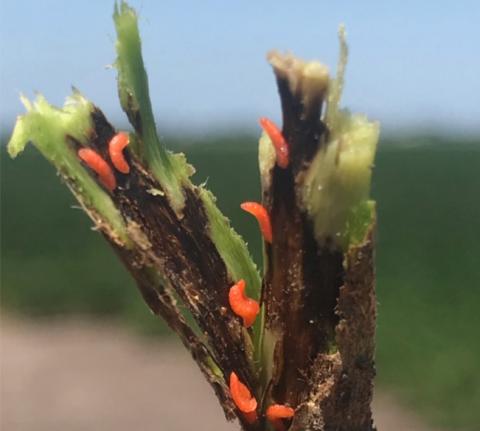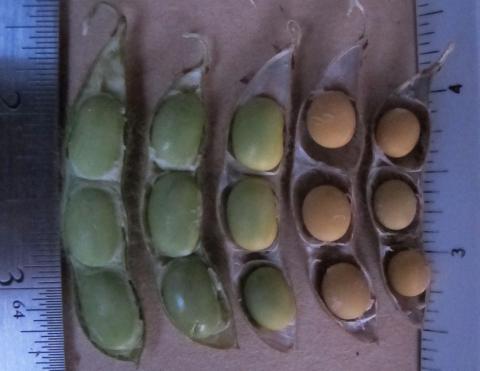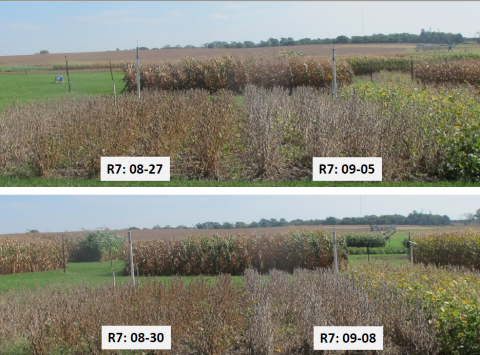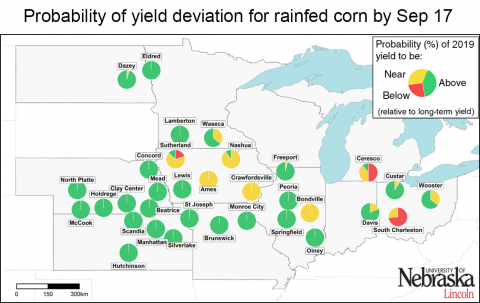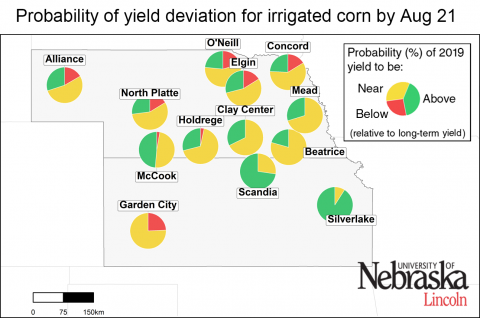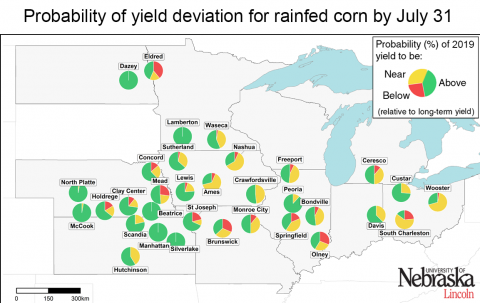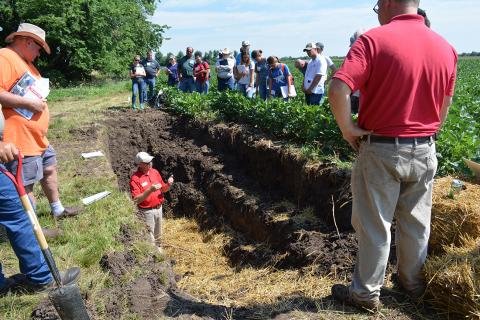Soybean Gall Midge Roundtable Meeting Set for Mar. 2
February 7, 2020
Come and join us from 9:30 a.m. - 3 p.m. on Monday, March 2nd, at the Eastern Nebraska Research and Extension Center (1071 County Road G, Ithaca, NE) for the latest information on this newly emerging soybean pest.
Taking Note of the Ending Reproductive Stages of Your Soybean Crop
August 27, 2020
The heat and drought in areas of the State are rapidly moving Nebraska’s 2020 soybean crop along. Growers have been asking how to determine late season growth stages for last irrigation of the season and for determining maturity.
Projecting Dates for Ending Reproductive Stages of a Soybean Crop Using SoyWater
October 9, 2019
How did the 2019 growing season affect the date of R7 (PM) in soybean varieties differing in MG (1.1 to 4.1) and planting date in eastern Nebraska? Take a look at graphs showing seasonal vegetative (Vn) and reproductive (Rn) development versus calendar date and compare the data with field photos.
2019 Corn Yield Forecasts as of September 17
September 19, 2019
Forecasted end-of-season yields for rainfed corn across the Corn Belt indicate above-average yield at two-thirds of the sites, with yields well above historical averages in Nebraska, Kansas, and Missouri. See data for individual irrigated and rainfed sites.
2019 Corn Yield Forecasts as of August 21
August 22, 2019
There is a high probability of near- or above-average yields at all but two of the 37 locations studied. Corn has reached dough stage at most locations, except for irrigated corn in western and north-central Nebraska, northern North Dakota and Minnesota, and the eastern fringe of the region (Indiana, Michigan, and Ohio).
2019 Corn Yield Forecasts as of July 31
August 2, 2019
This article summarizes the simulated crop stages and yield forecasts performed on July 31 for 37 locations across the US Corn Belt.
August Clinics Offer In-Field Training on Soil Health, Corn and Soybean Production
July 25, 2019
Nebraska Extension is offering in-field training opportunities at three Crop Management Diagnostic Clinics: the Soil Health Clinic Aug. 22, the Midwest Soybean Production Clinic Aug. 27, and the Midwest Corn Production Clinic Aug. 28.
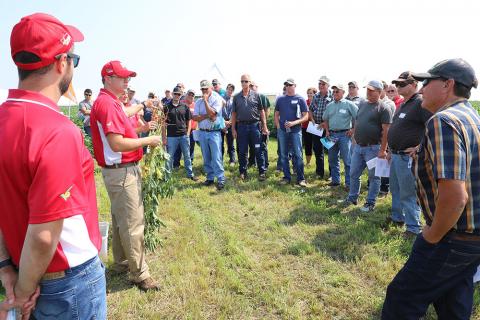
Nebraska Soybean Management Field Days at 4 Locations Aug. 13-16
July 25, 2019
Soybean Management Field Days Aug. 13-16 offer valuable, research-based information to help growers stay competitive in the global marketplace and increase profits while meeting the world's growing food and energy needs right here in Nebraska.


